Submitted by WA Contents
Hollowed-out concrete screens create changing filter for this service building in São Paulo
Brazil Architecture News - Nov 29, 2019 - 15:59 14793 views
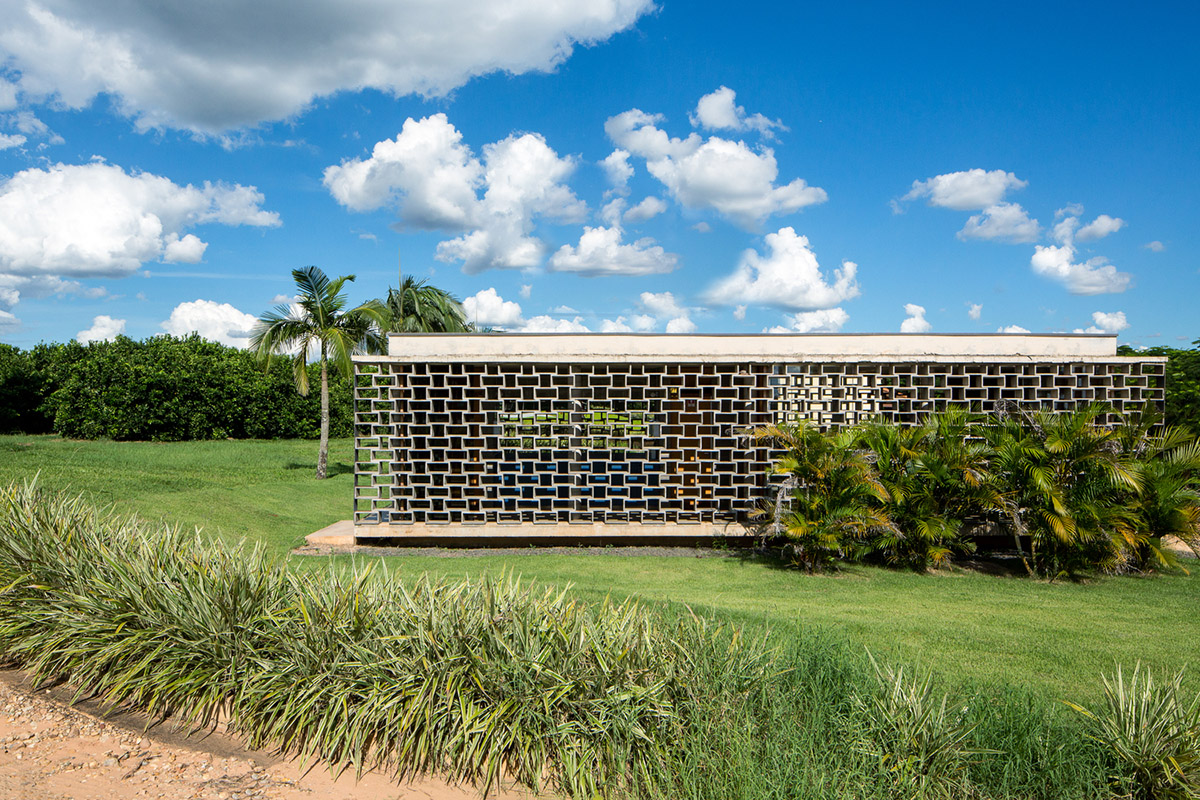
São Paulo-based architecture practice Bruno Rossi Arquitetos, in collaboration with Andre Scarpa, has built a simple and compact service building in the rural area of the São Paulo, Brazil by reinterpreting the concrete material as a filter and protective element for its facades.
Called Refectory and Dressing Room, the 80-square-metre building functions as a service pavilion and a small shelter for the orange harvest workers. The building's program includes a dressing room, a kitchen and a table for meals, as well as a space where workers find a retreat to rest, relax and unwind.
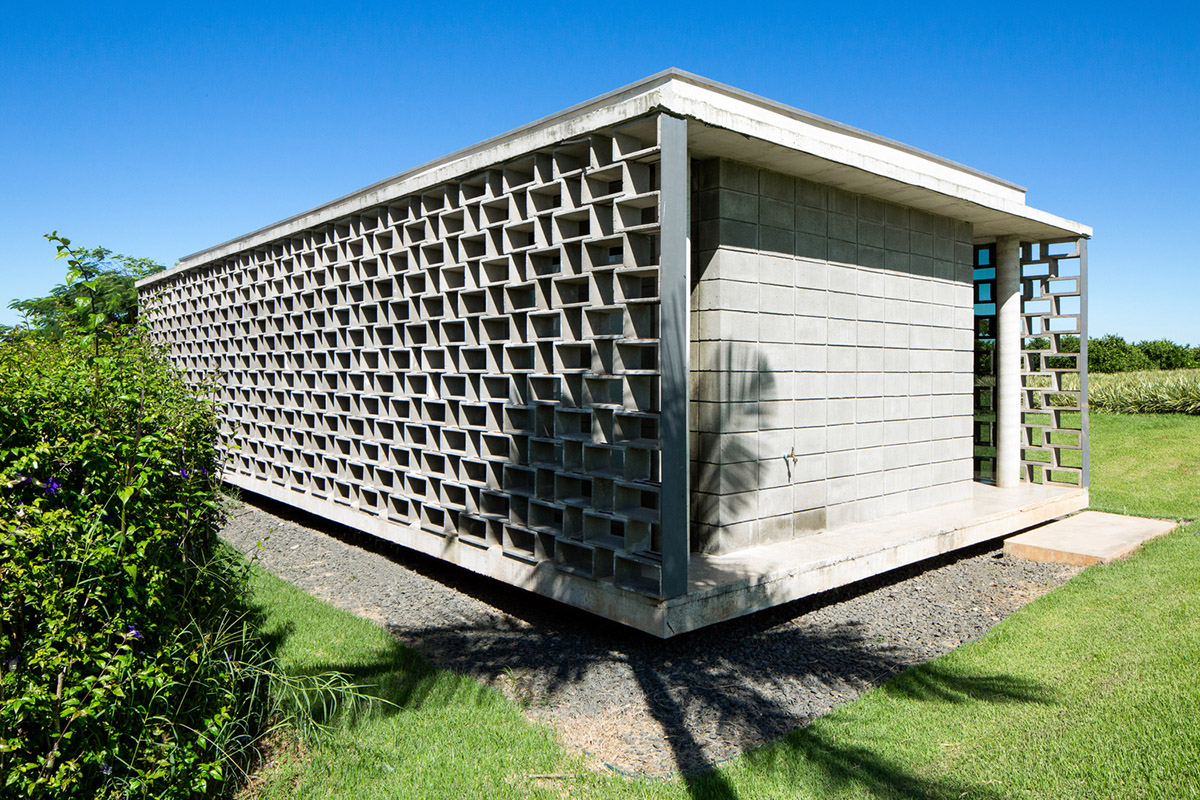
The architects aimed to construct this building by using a single element: the concrete block, which is common in traditional Brazilian architecture.
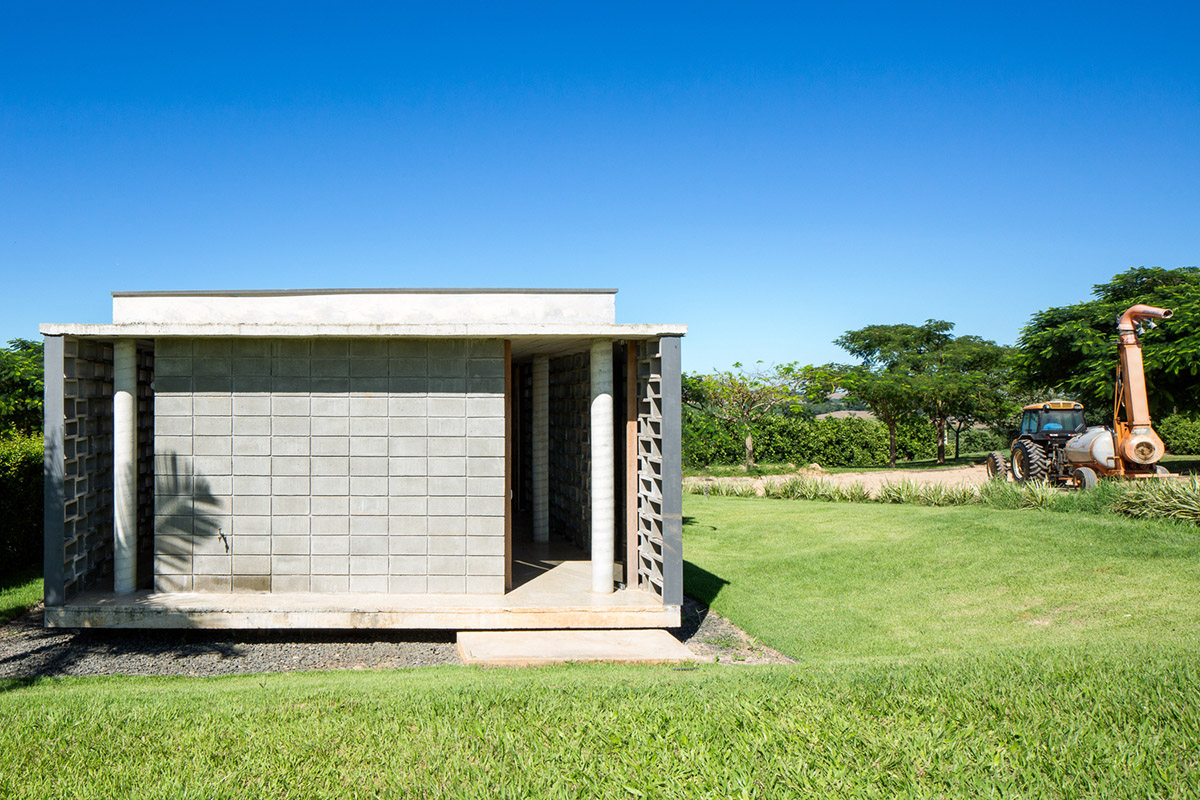
"This material stands as a structural element and all the project dimensions are modulated according to its size: precast concrete panels as slab, terrazzo on the floor and glass screens," said Bruno Rossi Arquitetos.
"All the other materials keep neutral, emphasizing the concrete block as the most important element, which is visible in its original aspect, without covering or painting."
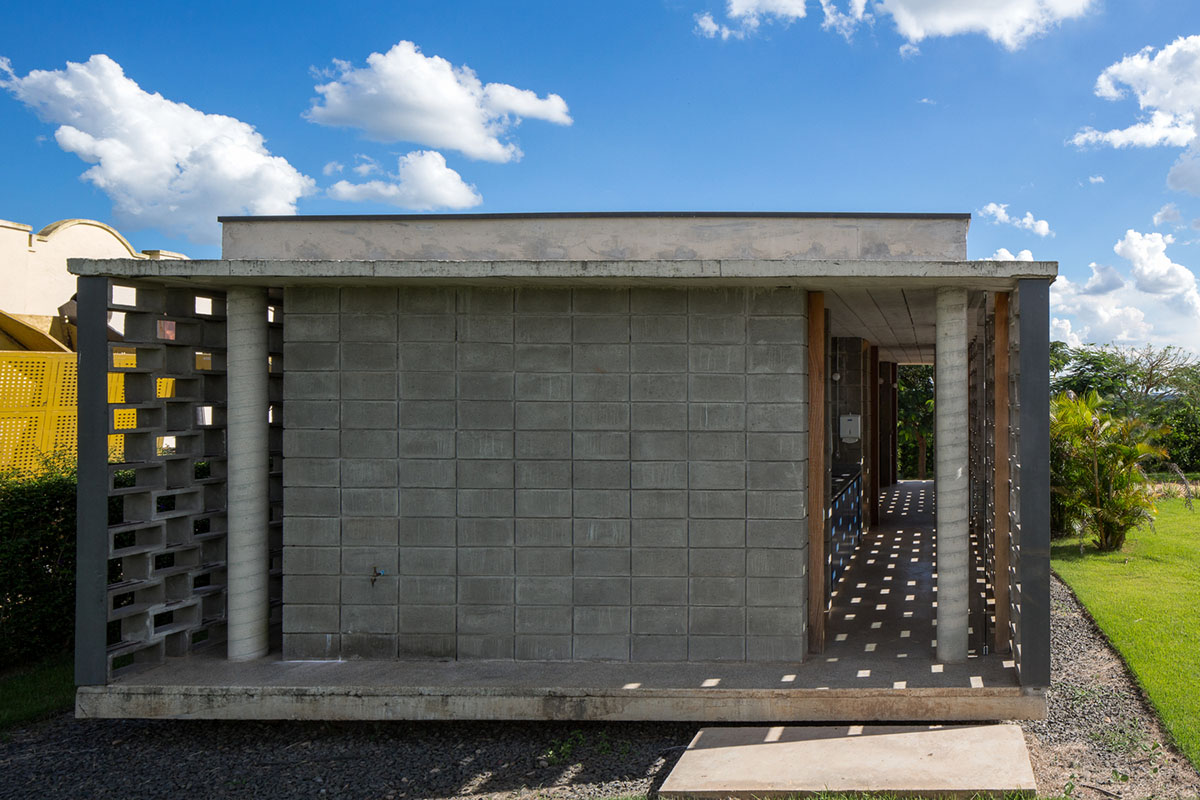
In the main elevations, the concrete block works as a hollowed-out element, creating a filter between interior and exterior, providing an interesting dynamic in the way the sunlight enters the room in different hours of the day.
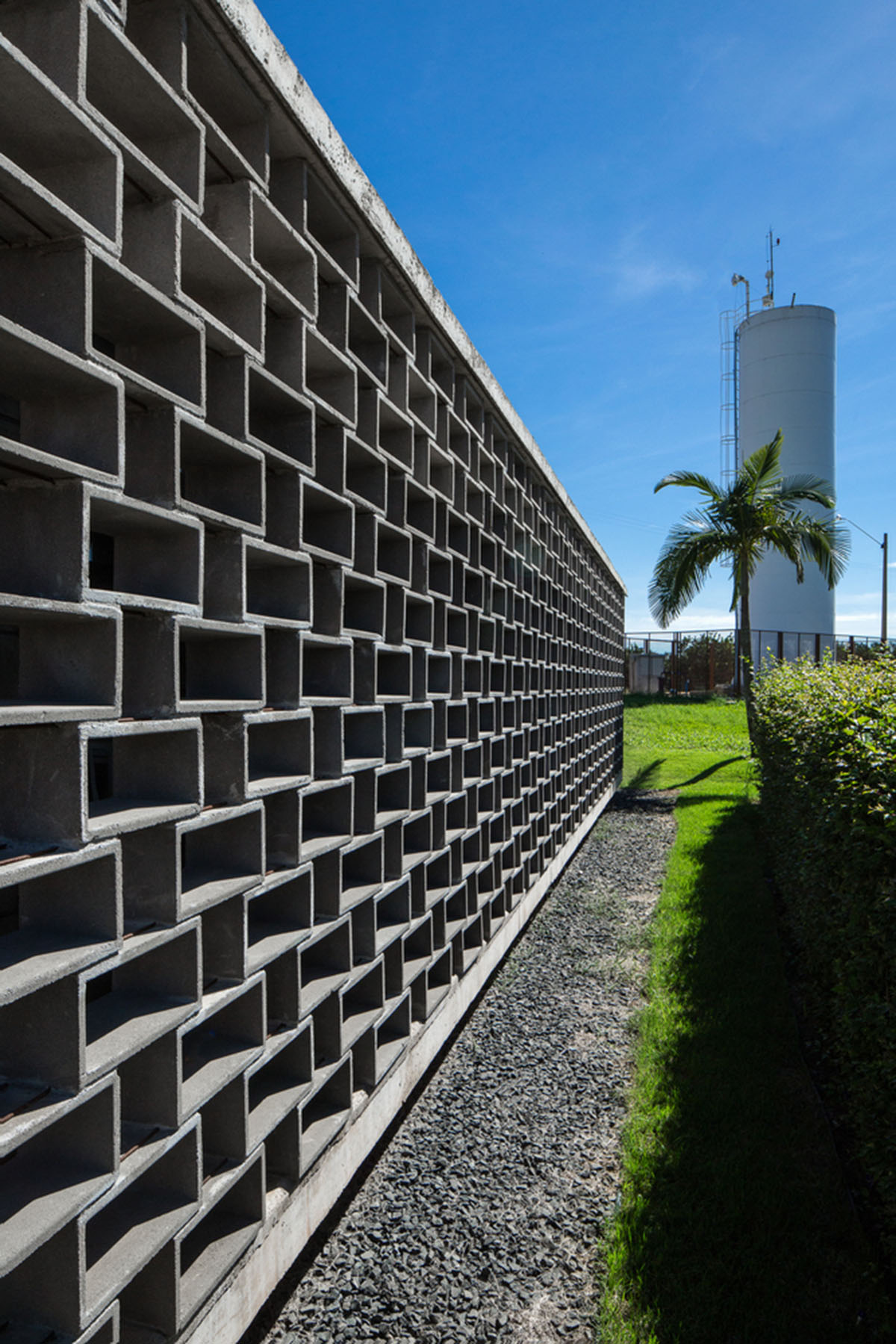
The hollowed-out element in the facades dissolves the limits, letting the surrounding colors, natural ventilation and illumination to enter the interior, still constituting a physical barrier. On the other hand, after dawn, the building is lit and emanates light through its hollowed-out walls.
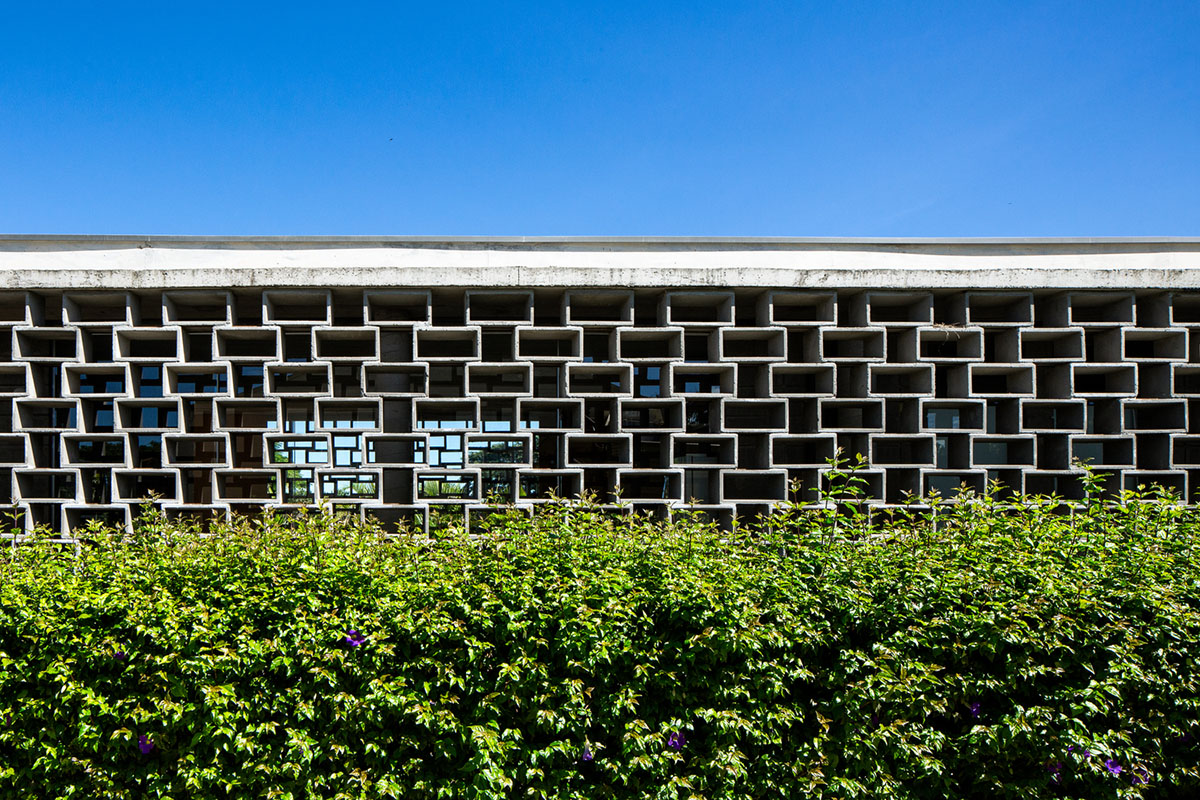
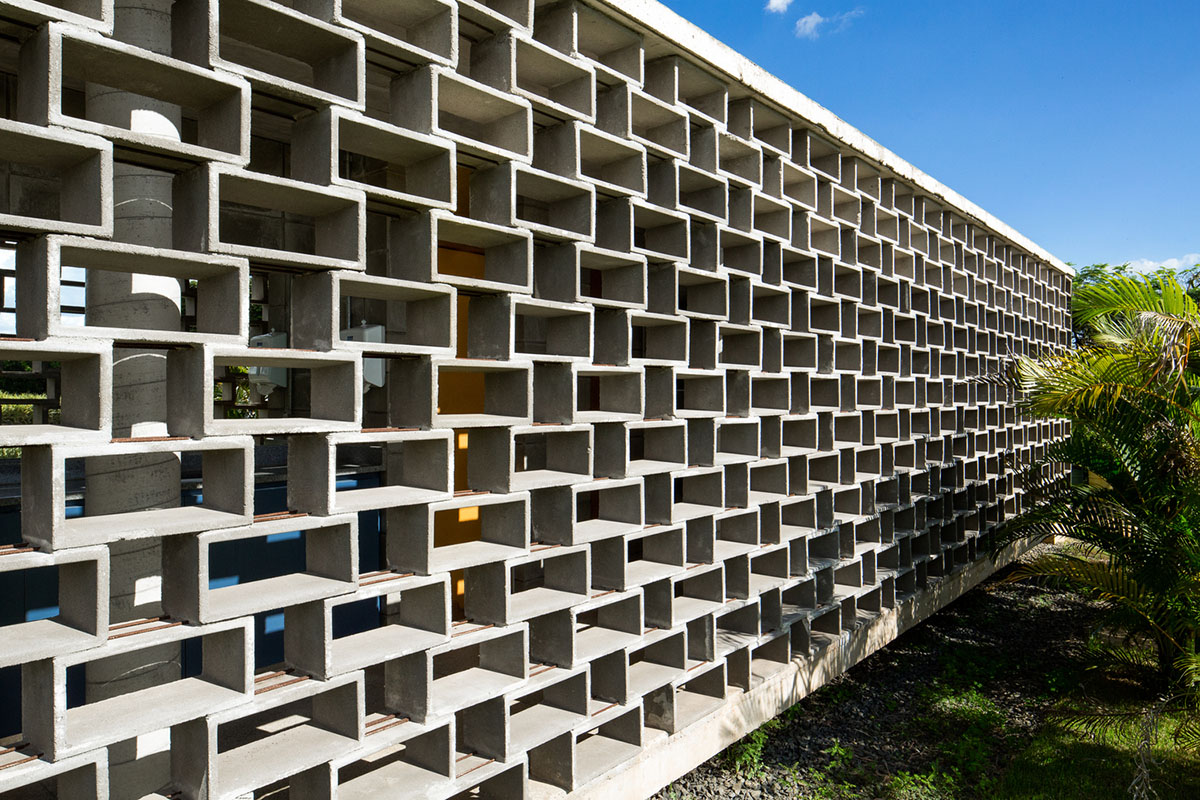
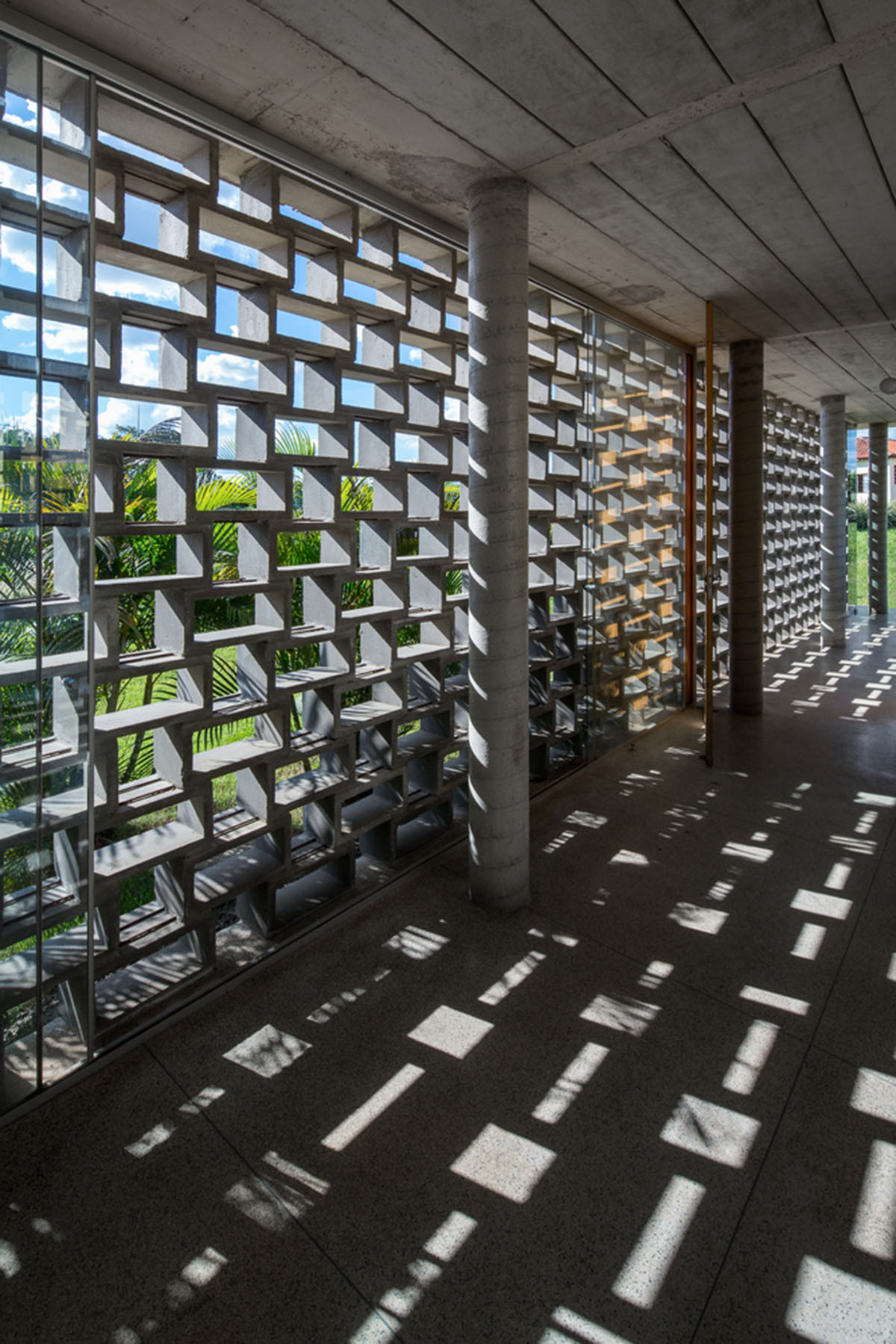
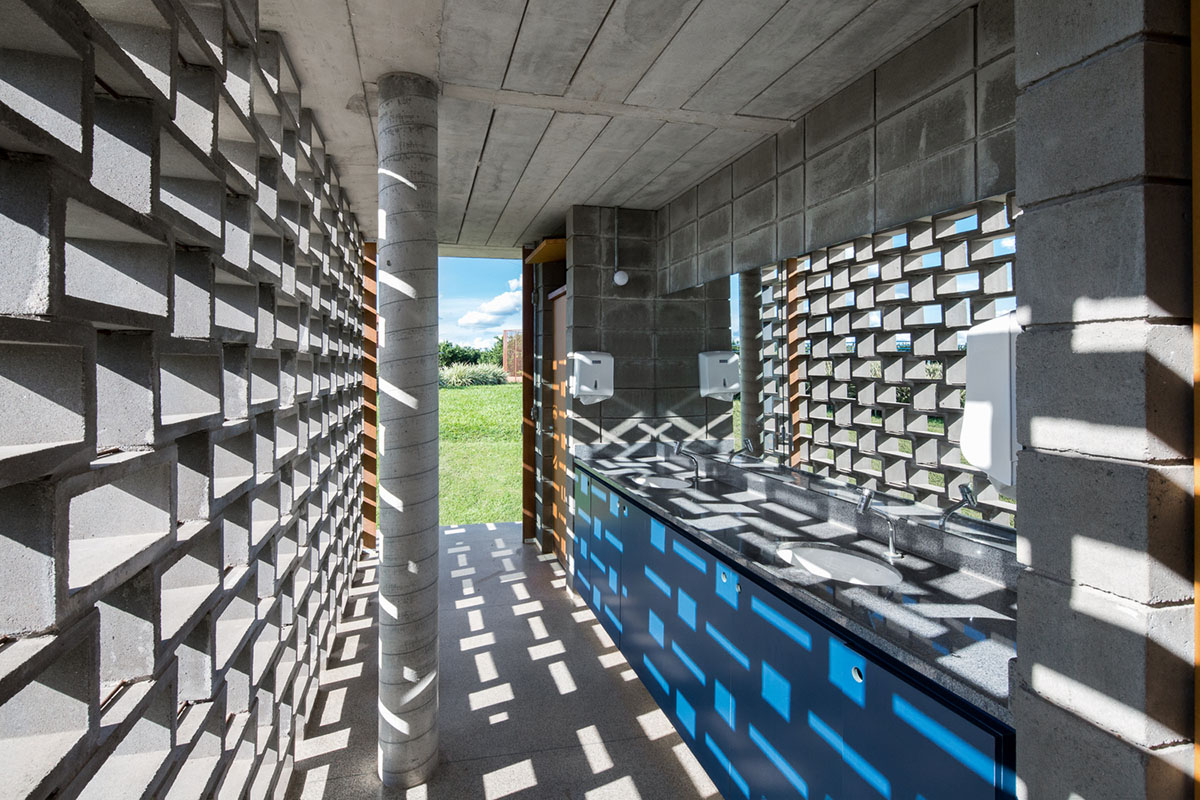
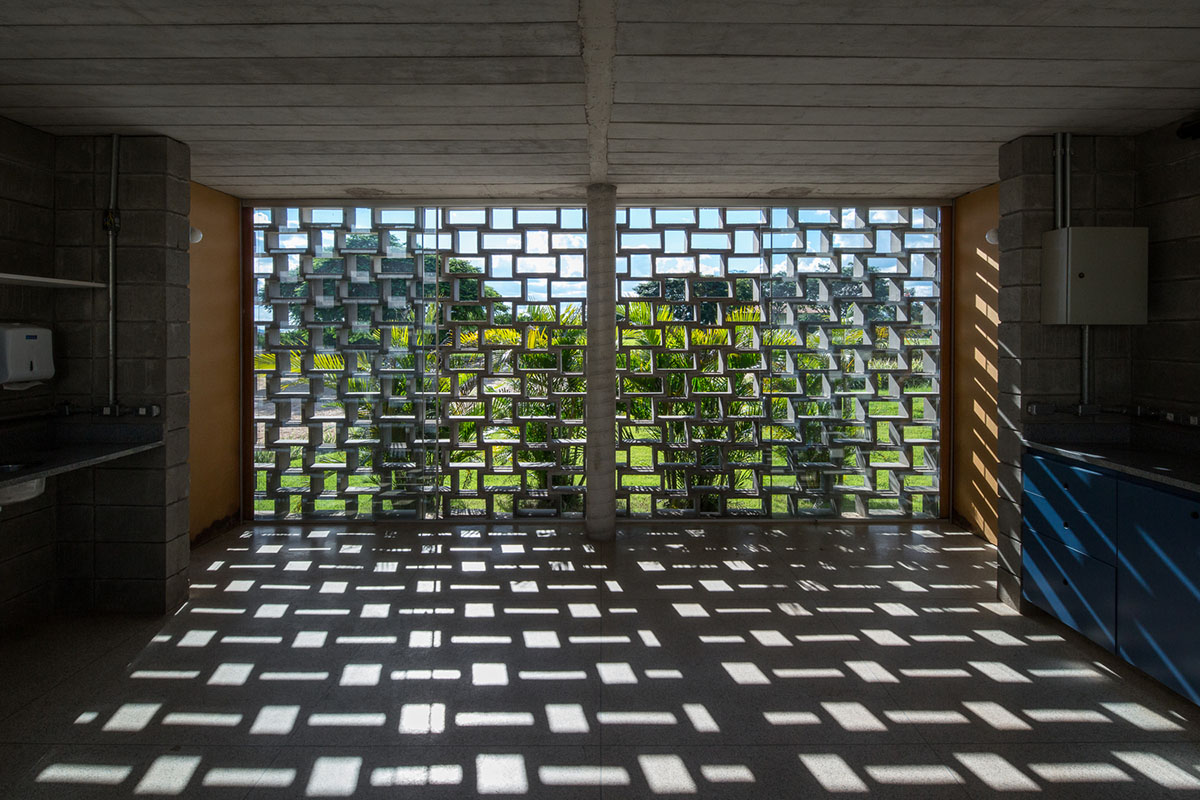
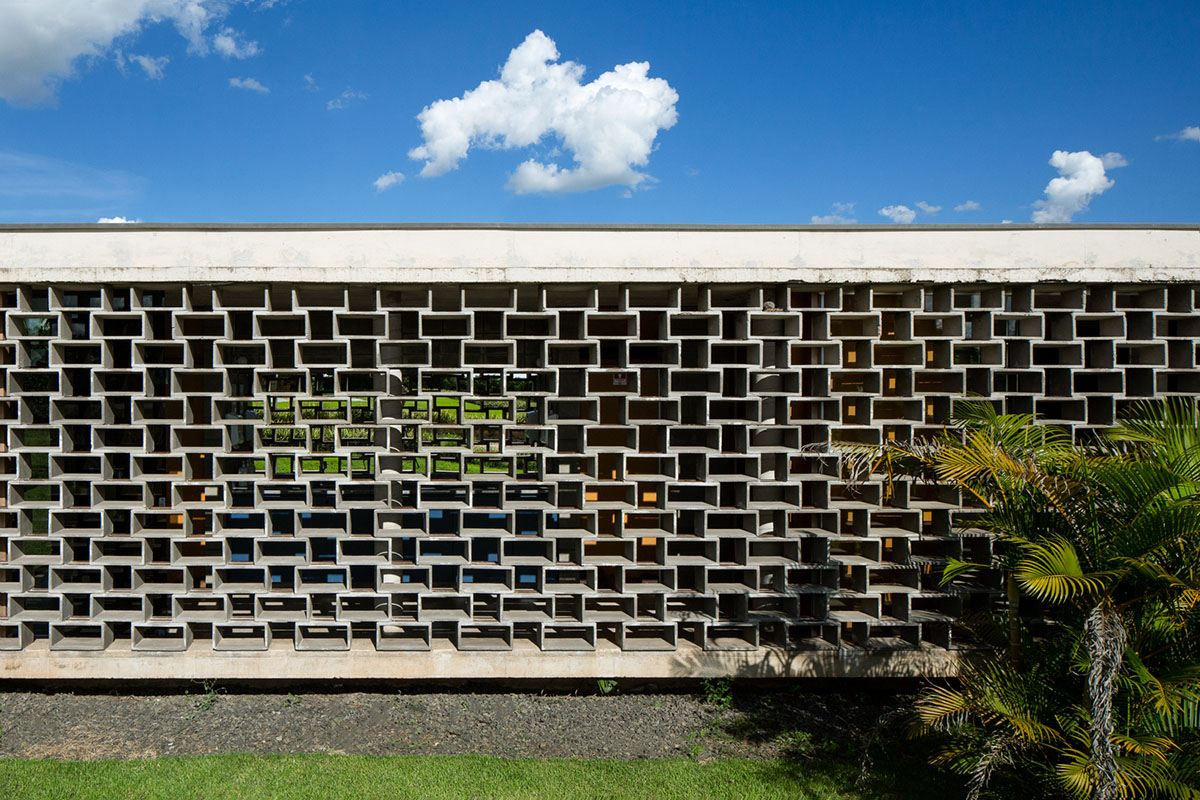
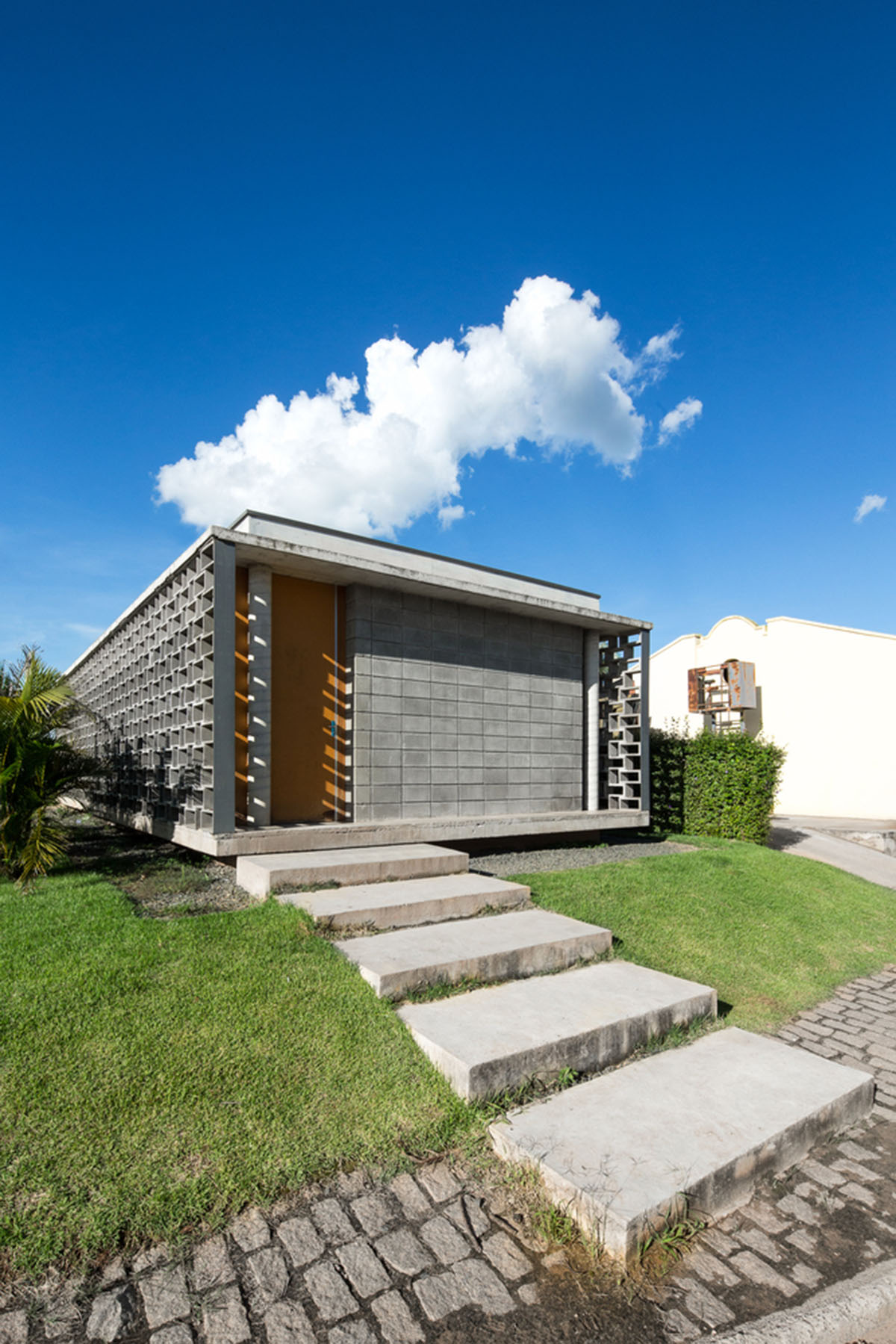
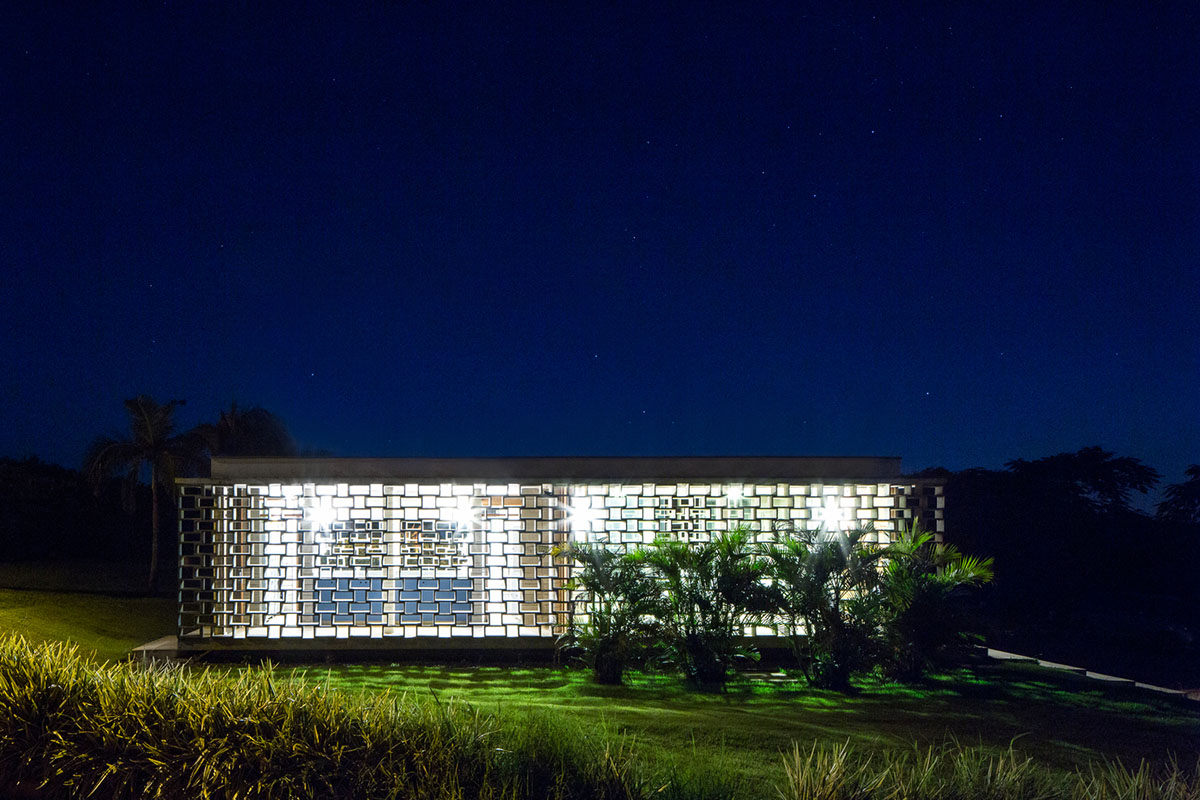
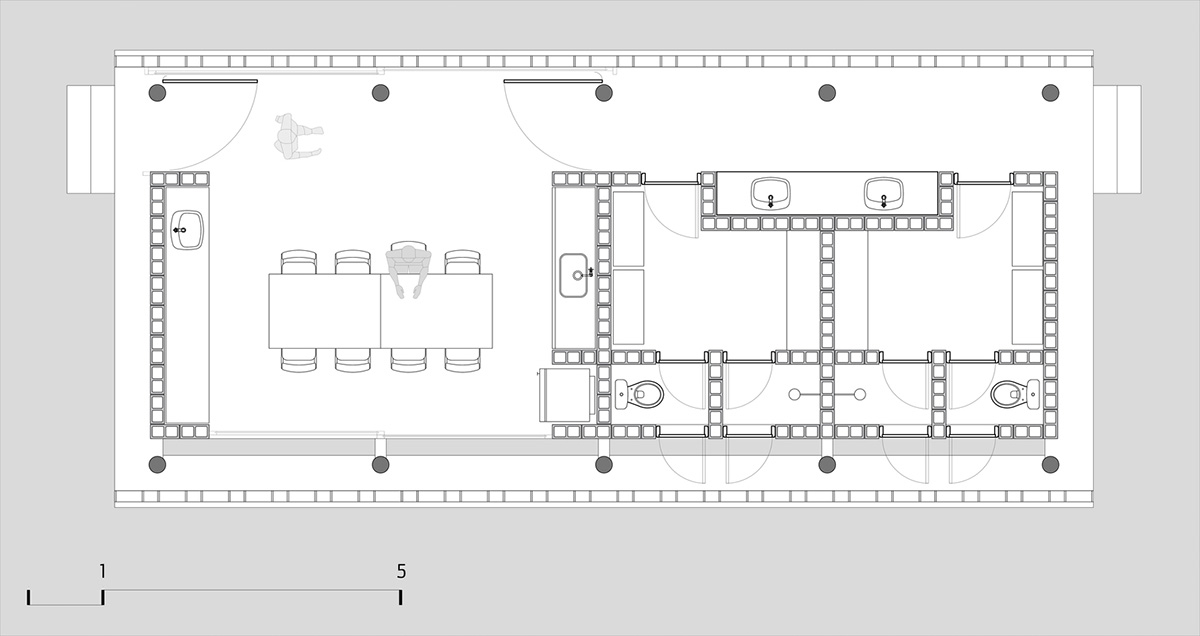
Ground floor plan
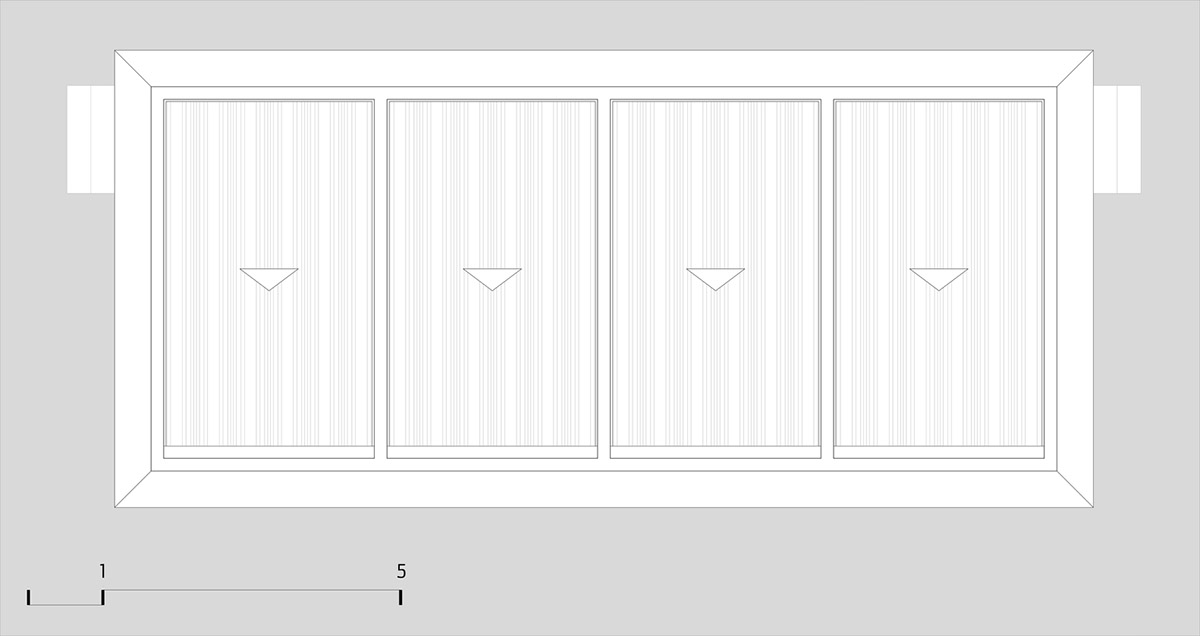
Roof plan
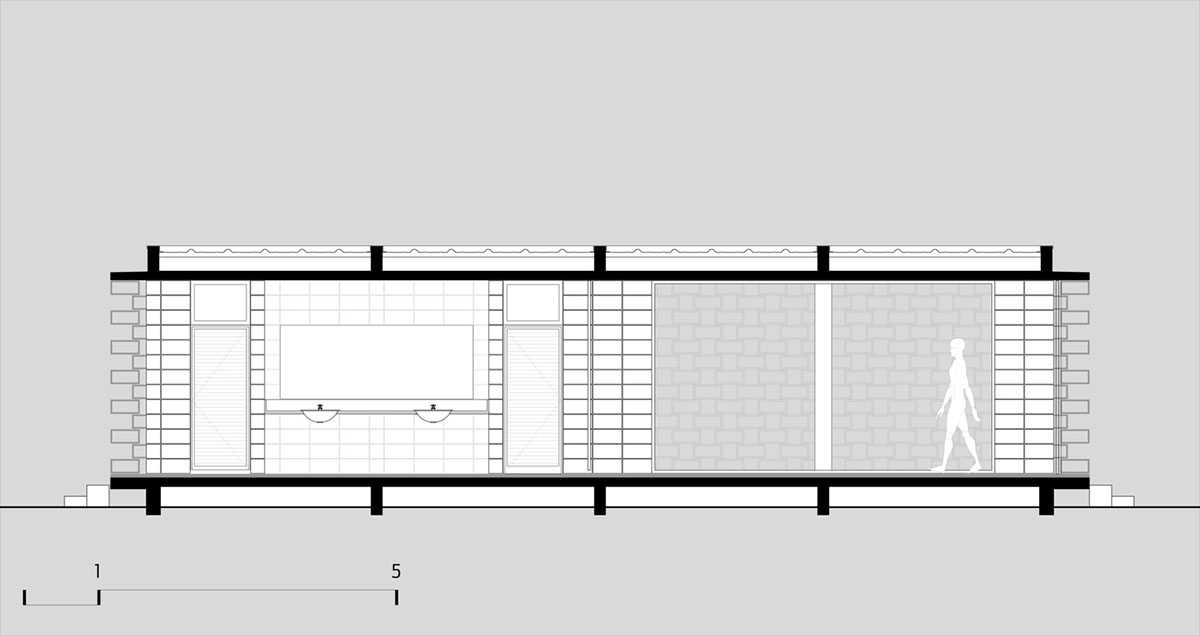
Section
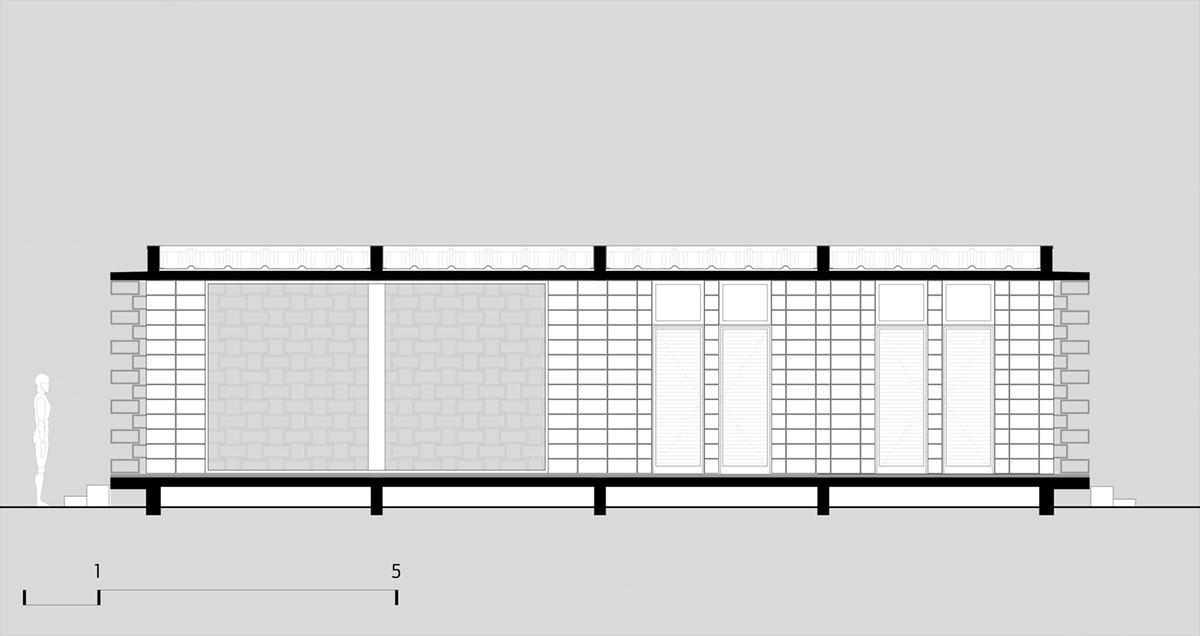
Section
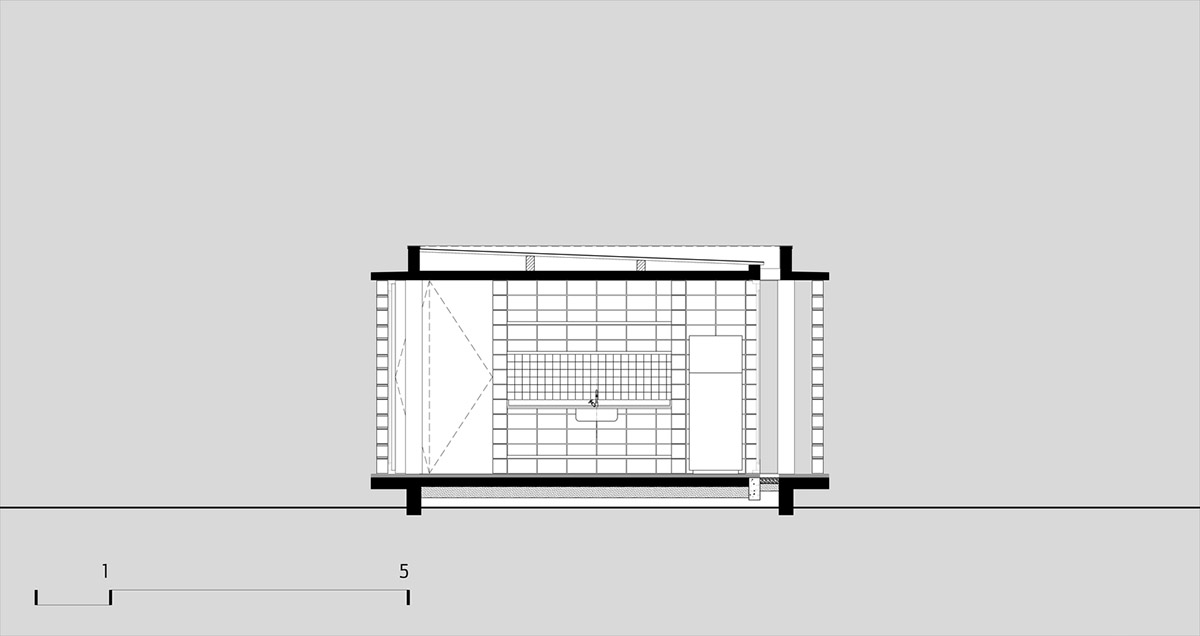
Section
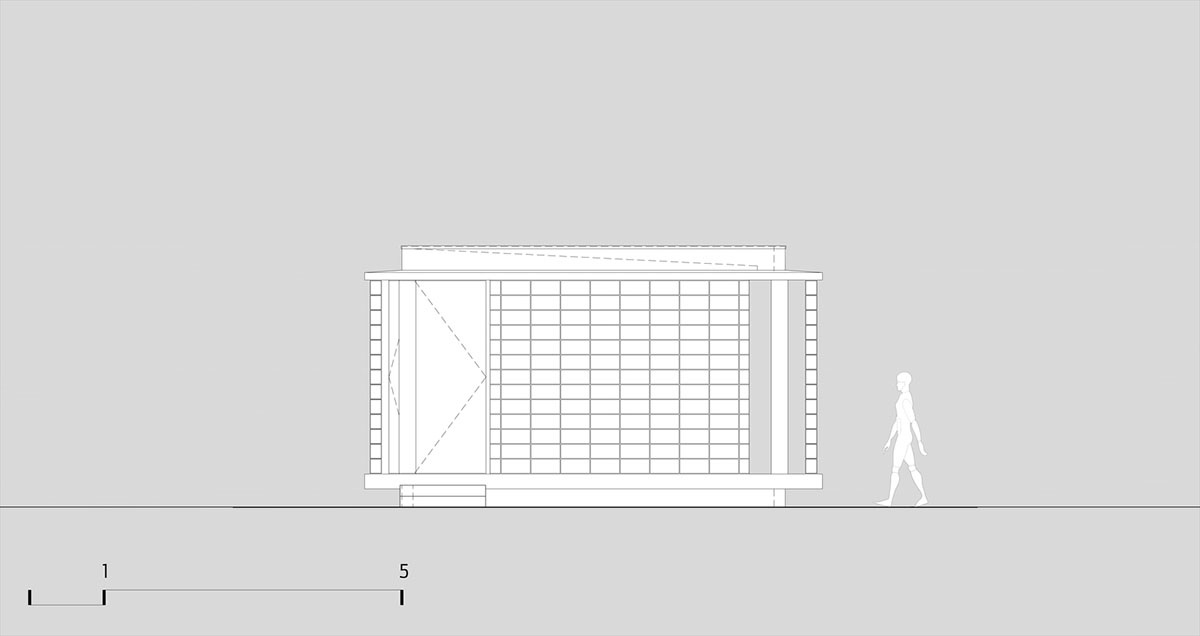
Elevation
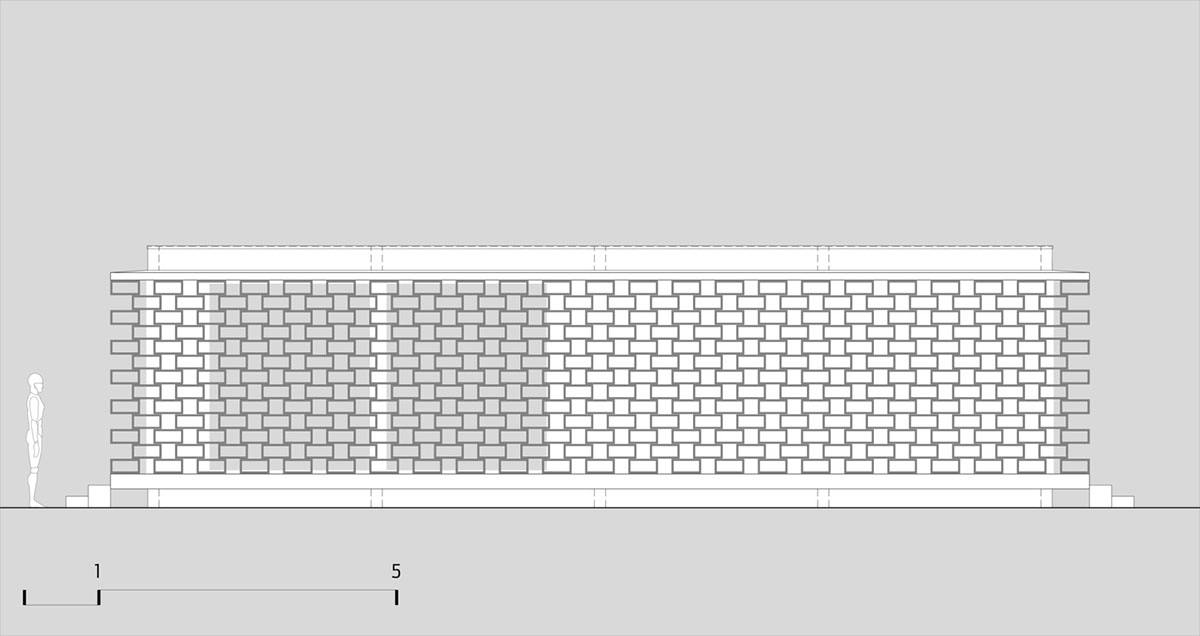
Elevation
All images © André Scarpa
> via Bruno Rossi Arquitetos
